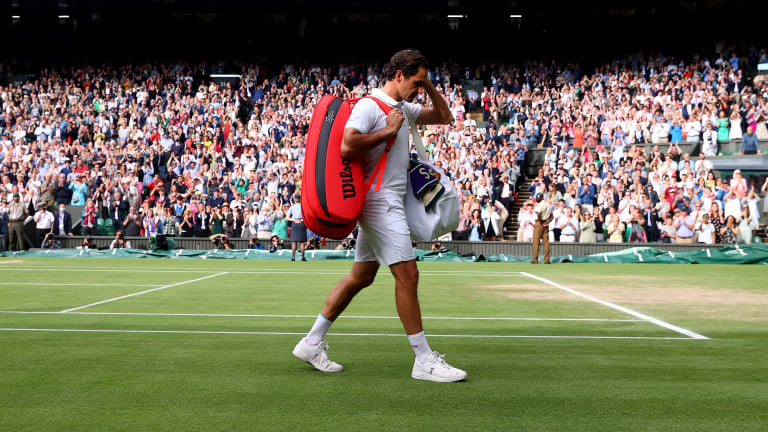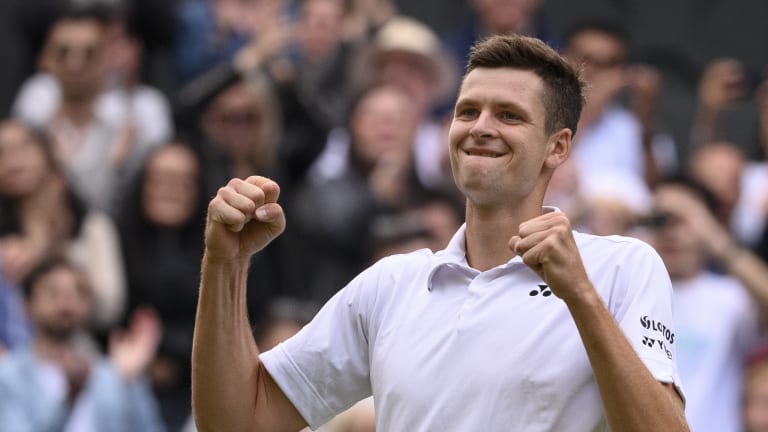For a period of time, Polish tennis fans grew accustomed to watching their own as members of Wimbledon’s Final 8 club. There was Agnieszka Radwanska, who, following a pair of quarterfinal runs in 2008 and 2009, reached three semifinals between 2012 and 2015. A year later, Jerzy Janowicz beat compatriot Lukasz Kubot in the quarters, and won the opening set over eventual champion Andy Murray in the semifinals. In 2017, on the doubles court, Kubot triumphed with Marcelo Melo, 13-11, in a gripping decisive set.
Hubert Hurkacz had shown plenty of signs that he’d one day join in on the fun. Notably, there was 2019 at the All England Club, when he went down to world No. 1 Novak Djokovic in a gritty four-set battle in the third round. When he went a step further last week in reaching the round of 16—without dropping serve no less—one had to wonder if there was a deeper run inside the 24-year-old. For the only two times Hurkacz had strung together three victories this season, in Delray Beach and Miami, he went on to win titles.
On Tuesday, he rallied to defeat world No. 2 Daniil Medvedev in five sets, completing their postponed fourth-round match with poise and a present mind. And just over 24 hours later, Hurkacz posted the win of his career, denying eight-time champion Roger Federer a shot at a 21st Grand Slam title with a 6-3, 7-6 (4), 6-0 victory.
MATCH POINT:

